Financial Aid FAQs
FAFSA Questions
How do I apply for financial aid?
Your first step to apply for financial aid starts with the FAFSA, the Free Application for Federal Student Aid. The FAFSA is your application for most types of financial aid. If you are a dependent student, both you and your parent will each need a unique Federal Student Aid ID (FSA ID) to complete and electronically sign the FAFSA. You can create your FSA ID online. Click here if you need more information about applying for financial aid.
Am I required to file a FAFSA for financial aid?
No, but we strongly recommend taking the time to complete the FAFSA to maximize your financial aid. Additionally, many outside scholarships require you to file a FAFSA before submitting an application.
Do I have to include my parent(s) on the FAFSA?
For FAFSA purposes, you are considered a dependent student and required to provide your parents’ financial information on your FAFSA unless one of the following applies:
- You are at least 24 years old
- You are married
- You are enrolled in a Graduate Program
- You have legal dependents
- You are a foster child or ward of the court
- You have been determined to be an emancipated minor by a court
- You meet the McKinney-Vento definition of homeless
- You are currently serving on active duty in the U.S. Armed Forces or are a veteran of the U.S. Armed Forces
- Other extenuating circumstances
Federal Regulations require you to include a parent on your FAFSA even if you are financially independent from your parents. If you meet one of the above criteria or have further questions, please contact our office.
Which parent(s) do I include on the FAFSA?
On the FAFSA, “Parent” means your legal (biological or adoptive) parent and stepparent, if applicable, that you have lived with the longest amount of time during the last 12 months. If you have not lived with a parent within the last 12 months or lived with two parents equally, you should provide information on the parent who has provided the most financial support. The Federal Student Aid Office provides this helpful chart to help you determine who your parent is.
If you do not live with a parent, are financially independent, but are not considered an independent student, you will need to provide information on the parent that you have most recently lived with or received financial support from.
If your parents are divorced but the parent listed on your FAFSA has remarried, you are required to include your stepparent’s financial information on the FAFSA.
Scholarship and Grant Questions
What are the differences between scholarships, grants and loans?
Grants and Scholarships are considered gift aid, meaning they are both types of financial aid that do not have to be repaid. Unlike gift aid, you are required to pay back any loans you accept and any interest that has accrued.
What is a Federal Pell Grant?
The Federal Pell Grant is a need-based grant offered to undergraduate students working on their first bachelor’s degree. Eligibility is determined through a standard formula established by Congress based on the information that is reported on the FAFSA (Free Application for Federal Student Aid). If you have been offered a Pell Grant, you must be enrolled full-time in order to receive the full amount of the grant shown on your offer letter.
What is the Federal Supplemental Educational Opportunity Grant (FSEOG)?
The Federal Supplemental Educational Opportunity Grant (FSEOG) is a need-based grant offered to undergraduate students who are enrolled in a first bachelor’s degree program and are eligible for a Federal Pell grant. There is limited funding for this grant and first consideration is given to the recipients of the Federal Pell Grant who demonstrate the most financial need.
What is the North Carolina Need-Based Scholarship?
The North Carolina Need Based Scholarship (NCNBS) was established by the North Carolina General Assembly to provide need-based funding for students attending eligible private institutions. NCNBS funds will be offered based on the student’s Estimated Family Contribution as determined by the FAFSA (Free Application for Federal Student Aid). To determine your eligibility for the N.C. Need Based Scholarship, please visit the Residency Determination Service (RDS) website and complete the Residency Determination.
Are there any other scholarships/grants available to me?
If you have not taken the time to complete the FAFSA (Free Application for Federal Student Aid), we strongly recommend you do so to see if you qualify for additional scholarships or grants.
If you have completed the FAFSA, we suggest you seek out and apply for as many outside scholarships that you can find. We have provided a list of resources on our Types of Financial Aid webpage, but there are an unlimited number of scholarship search engines available online.
If you are an incoming freshman, we also recommend speaking to your high school counselor, inquiring with your parent’s place of work, local civic organizations, and your place of worship. One important thing to remember is that you should not have to pay to apply for a scholarship!
How do I notify the school when I have received an outside scholarship?
Send a copy of the scholarship letter to the Financial Aid Office by mail, fax or email. Upon receipt of the letter, the Financial Aid Office will add the scholarship to your financial aid as a “Hold” so that the Student Accounts Office can see it on the student’s invoice. Once we have received the scholarship check, the scholarship will be applied to the student’s account. Scholarship checks should be mailed directly to the Financial Aid Office.
Loan Questions
What is the difference between subsidized and unsubsidized loans?
The Federal Direct Subsidized Loan is a loan offered to undergraduate students with financial need as determined by the FAFSA. The Department of Education pays the interest on these loans while the student is enrolled at least half-time (6 credit hours).
The Federal Direct Unsubsidized Loan is offered to eligible undergraduate and graduate students who have filed a FAFSA. The student is responsible for paying the amount borrowed, plus interest, that accrues on these loans. Payments are not required during enrollment, but if the interest is not paid, it will accrue and be capitalized.
I have accepted all of the Federal Direct Loans offered to me and still have a balance. How can I borrow additional Federal Direct funds?
There are limits to the amount of Federal Direct Loans that you are eligible to receive each academic year. These limits are based on your year in school (freshman, sophomore, junior, or senior) and your dependency status (dependent or independent).
If you need to borrow additional loans, there are a few options available. First, there is a Federal Direct PLUS Loan for Parents. This is a Federal Loan that your parent can apply for online using their Parent FSA ID. If your parent is not approved, you may be eligible for additional Federal Direct Unsubsidized funds. If your parent needs help completing the PLUS Loan Application, we have a guide with step-by-step instructions that will help walk them through the process.
Alternatively, you may want to explore Private Student Loans. Our office offers a Loan Comparison Tool to compare lenders.
When am I required to start repaying my federal student loans?
Repayment of Federal Direct Subsidized and Unsubsidized loans begins six months after the student is no longer enrolled or six months after the student drops below half-time enrollment.
If a student has previously begun repayment, they will not have the six month grace period and must begin repayment immediately upon no longer being enrolled or if they drop below half-time enrollment.
When am I required to start repaying my private student loans?
Repayment of Private Student Loans is dependent on the lender or bank the student borrows from. There are four common repayment plans, but not every lender will offer all four.
If a student has previously begun repayment, they will not have the six month grace period and must begin repayment immediately upon no longer being enrolled or if they drop below half-time enrollment.
The common repayment plans are:
- Full deferment – Repayment begins once the student is no longer enrolled
- Immediate repayment – Full monthly payments are required while the student is enrolled
- Interest-only repayment – Monthly interest payments are required while the student is enrolled
- Partial interest repayment – Flat monthly payments are made to cover part of the interest
Can I transfer my Federal Direct PLUS Loan for Parents to my student after they have graduated?
No. As the borrower, the parent is responsible for repaying the Parent PLUS and any interest that accrues. The parent can choose to defer repayment until six months after the student is no longer enrolled.
Required Documents Questions
How do I know if I have completed everything to finalize my financial aid offer?
Log in to your GC Jenzabar Financial Aid Portal to review all your Documents and Notifications. The Documents page and the Notifications page will direct you to the tasks required to finalize your financial aid.
What is entrance counseling? How do I complete it?
Entrance Counseling is an exercise that you are required to do when you choose to borrow a federal student loan. This exercise is used to ensure that you understand the responsibilities and obligations you are assuming when borrowing a federal loan.
What is a master promissory note? How do I complete it?
A Master Promissory Note is a legal document in which you promise to repay your federal student loan(s) and any accrued interest and fees.
How do I prove I am a North Carolina resident for the NC need-based scholarship?
To determine your eligibility for the N.C. Need-Based Scholarship, please visit the Residency Determination Service (RDS) website and complete the Residency Determination. Once our office verifies your residency, we will receive the Required Document on your Pride Page.
Other Important Questions
What is the Federal Work Study Program?
Work Study is a federally funded work program with limited positions that allows students to work on campus and for select off-campus partners. Unlike most financial aid, work study does not go directly toward covering your tuition. Work study students find a job within the program and receive a paycheck monthly for your hours worked. Through this program, you have the opportunity to gain valuable work experience, build your resume, learn new skills, and refine some of the skills you already have.
The Office of Student Financial Services determines which students are eligible for the Federal Work Study program according to the Department of Education guidelines. Only those students who have filed a FAFSA, and who meet all Federal guidelines, may be certified for employment. Priority is given to returning students.
What is Satisfactory Academic Progress (SAP)?
As a student, you are required to maintain satisfactory academic progress and to remain in academic good standing to retain eligibility for financial aid. Satisfactory academic progress is a federal requirement and is measured by multiple factors, including, but not limited to, your GPA and the number of credit hours passed.
How does financial aid work for the summer?
For Financial Aid purposes, summer school is considered to be the final term of the academic year. Financial Aid received during the fall and spring terms of the academic year will be considered when Pell Grant and Federal Direct Loan eligibility are determined for the summer term. Undergraduates must be enrolled in 6 hours and graduate students must be enrolled in at least 3 hours (in one or both terms) to be eligible for student and/or parent loans.
All students who apply for Financial Aid for summer are required to file the Free Application for Federal Student Aid (FAFSA).

